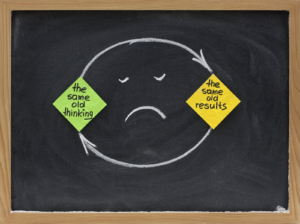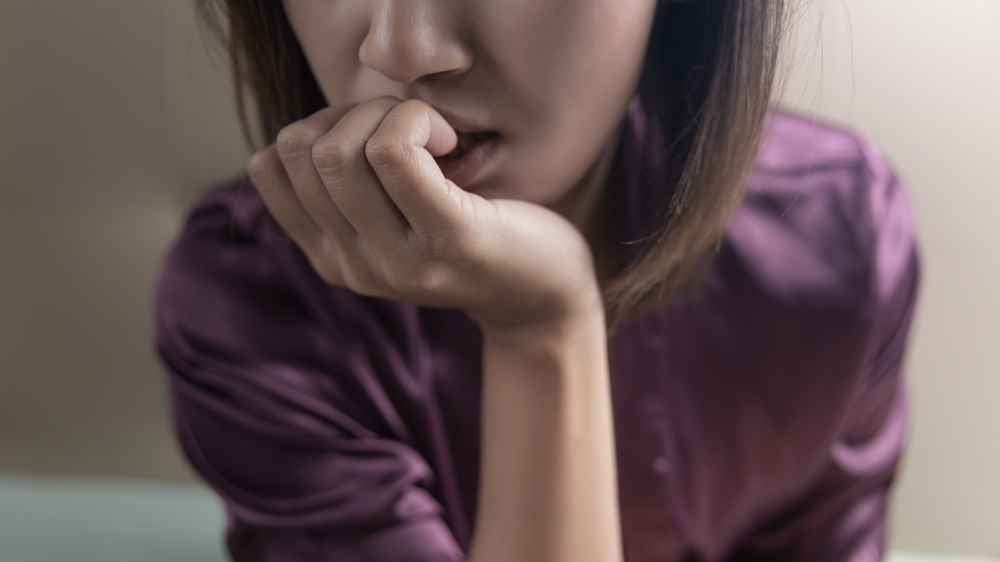An Anxiety Therapist in Atlanta, GA Shares Why Health Anxiety So Difficult to Tackle
Health anxiety can be a debilitating condition that traps sufferers in a vicious cycle of worry and fear.
 It’s more than just a passing concern about your health; it’s a constant preoccupation with the belief that you have, or are about to develop, a serious illness. This fixation stems from a misinterpretation of normal bodily sensations and a tendency to catastrophize any symptom, no matter how minor. What makes health anxiety so difficult to tackle is the way it feeds on itself, creating a loop of anxiety that’s resistant to simple reassurance or logic. There is an uphill battle in addressing health-related anxiety due to the increase in exposure to constant illnesses and diseases on social media and the internet. It is important to learn ways to address and heal your health-related anxiety before it takes over your life.
It’s more than just a passing concern about your health; it’s a constant preoccupation with the belief that you have, or are about to develop, a serious illness. This fixation stems from a misinterpretation of normal bodily sensations and a tendency to catastrophize any symptom, no matter how minor. What makes health anxiety so difficult to tackle is the way it feeds on itself, creating a loop of anxiety that’s resistant to simple reassurance or logic. There is an uphill battle in addressing health-related anxiety due to the increase in exposure to constant illnesses and diseases on social media and the internet. It is important to learn ways to address and heal your health-related anxiety before it takes over your life.
How Health Anxiety Sneaks In, Takes Over, and Makes It Difficult to Tackle
One of the hallmarks of health anxiety is the misinterpretation of normal bodily fluctuations. Our bodies are complex and constantly changing. A twinge in your chest, a dull ache in your stomach, or a fleeting moment of dizziness – these are all part of the normal human experience. However, for someone with health anxiety, these sensations morph into terrifying signs of impending doom. A healthy heartbeat becomes a potential arrhythmia, a headache morphs into a brain tumor, and fatigue translates to a hidden chronic illness. This misinterpretation fuels anxiety, causing physical symptoms like muscle tension and shortness of breath, which are then misinterpreted as further evidence of disease. This cycle can spiral quickly, leading to intense fear and panic.
At the core of health anxiety lies a deep-seated fear of illness disrupting the life a person has built.
It’s not just the physical discomfort of being sick that they fear; it’s the potential loss of function and independence. Someone with health-related anxiety might worry about being unable to work, care for their family, or participate in hobbies and activities they enjoy. The fear of missing out on life experiences due to illness can be a significant source of anxiety. They might imagine themselves bedridden, reliant on others, or unable to maintain the active lifestyle they value.
 This fear can manifest in a constant need to be “on” and performing at their peak, creating further anxiety, and potentially leading to burnout. The cycle intensifies as the worry about getting sick interferes with their ability to take care of themselves properly, which can ironically make them more susceptible to actual illness. This fear of losing control and being unable to function at their desired level can be a powerful motivator for health anxiety behaviors like compulsive symptom checking and doctor visits, all in a desperate attempt to maintain their well-being and avoid the dreaded scenario of illness-induced limitations.
This fear can manifest in a constant need to be “on” and performing at their peak, creating further anxiety, and potentially leading to burnout. The cycle intensifies as the worry about getting sick interferes with their ability to take care of themselves properly, which can ironically make them more susceptible to actual illness. This fear of losing control and being unable to function at their desired level can be a powerful motivator for health anxiety behaviors like compulsive symptom checking and doctor visits, all in a desperate attempt to maintain their well-being and avoid the dreaded scenario of illness-induced limitations.
Another reason health anxiety is so hard to manage is the tendency to fixate on worst-case scenarios.
People with this condition don’t simply worry about being sick; they obsess over the most dire possibilities. A headache isn’t just a headache, it’s a potential brain tumor. A cough isn’t a passing cold, it’s the first sign of lung cancer. This catastrophizing fuels the anxiety fire, making every ache and pain seem magnified and threatening. The internet, which can be a valuable resource for information, unfortunately, becomes a breeding ground for health anxiety. Googling symptoms often leads to inaccurate or misleading results, further amplifying fears. Reading about rare diseases can make a person feel like every twinge is a sign of something exotic and fatal. This reliance on Dr. Google fosters a sense of self-diagnosis, bypassing qualified medical professionals and creating a never-ending cycle of self-directed worry.
Perhaps the most frustrating aspect of health-related anxiety is the way reassurance backfires.
Seeking reassurance from doctors or loved ones might provide temporary relief, but it rarely offers a lasting solution. A clean bill of health from a doctor is often dismissed as incomplete or inaccurate, and new symptoms or anxieties can quickly restart the cycle of worry. Reassurance becomes a compulsive behavior, a temporary fix that ultimately reinforces the underlying fear. The more someone relies on external validation for their health, the less they trust their own bodies and the less effective reassurance becomes.
As a therapist, I have seen firsthand the impact of health-related anxiety. All the doctor appointments, medical treatments and procedures, lack of feeling present, difficulty with sleep and intense stress. Health anxiety can disguise itself as helpful and have you believing that you will be healthier and live longer if you listen to your fears. Yet it steals your happiness and ability to live a fulfilling life.
What Can You Do to Treat Health Anxiety?
 Breaking free from health anxiety requires a multifaceted approach. Cognitive behavioral therapy (CBT) is a particularly effective treatment. CBT helps identify and challenge distorted thinking patterns that fuel anxiety. Through CBT, individuals learn to recognize and reframe negative thoughts associated with bodily sensations. Relaxation techniques like deep breathing and mindfulness meditation can also be helpful in managing anxiety symptoms and promoting a sense of calm. Exposure therapy, a technique where individuals are gradually exposed to feared situations or stimuli in a safe and controlled environment, can also be useful in reducing anxiety around illness and medical settings.
Breaking free from health anxiety requires a multifaceted approach. Cognitive behavioral therapy (CBT) is a particularly effective treatment. CBT helps identify and challenge distorted thinking patterns that fuel anxiety. Through CBT, individuals learn to recognize and reframe negative thoughts associated with bodily sensations. Relaxation techniques like deep breathing and mindfulness meditation can also be helpful in managing anxiety symptoms and promoting a sense of calm. Exposure therapy, a technique where individuals are gradually exposed to feared situations or stimuli in a safe and controlled environment, can also be useful in reducing anxiety around illness and medical settings.
Living With Health Anxiety in Atlanta, GA Can Be Isolating and Frightening. However, It’s Important to Remember That You Are Not Alone.
Many people struggle with this condition, and there is effective help available. If you suspect you might have health anxiety, reach out to a healthcare professional or mental health therapist. We have several therapists that specialize in treating health anxiety at Informed Therapy Group and we have providers that can see clients virtually in 39+ states. Reach out today for a free initial consultation. With treatment and self-management strategies, you can learn to manage your worries and reclaim your life from the grip of health anxiety. Start your therapy journey by following these simple steps:
- Reach out for a free consultation
- Meet with a caring therapist from our team
- Start coping with anxiety in healthier ways!
Other Services Offered with Informed Therapy
Anxiety therapy isn’t the only service offered by Informed Therapy Group. Our team understands that you may be struggling with more than one mental health concern. This is why we are happy to offer support with therapy for depression, therapy for stress management, Postpartum therapy, and therapy for grief and loss. We also specialize in couples therapy and pregnancy counseling. To learn more about Informed Therapy read About Us, FAQs, and our blog!


